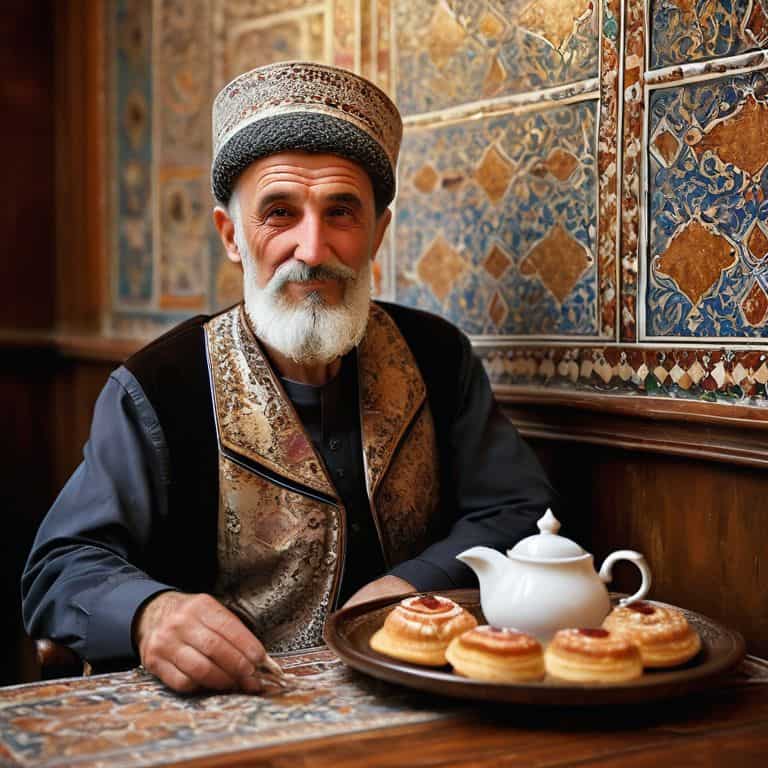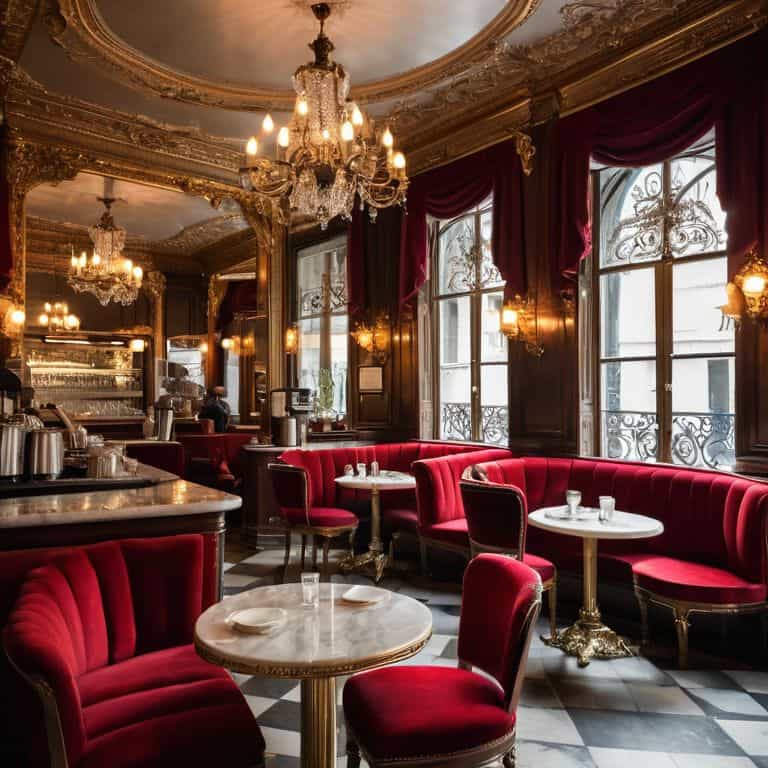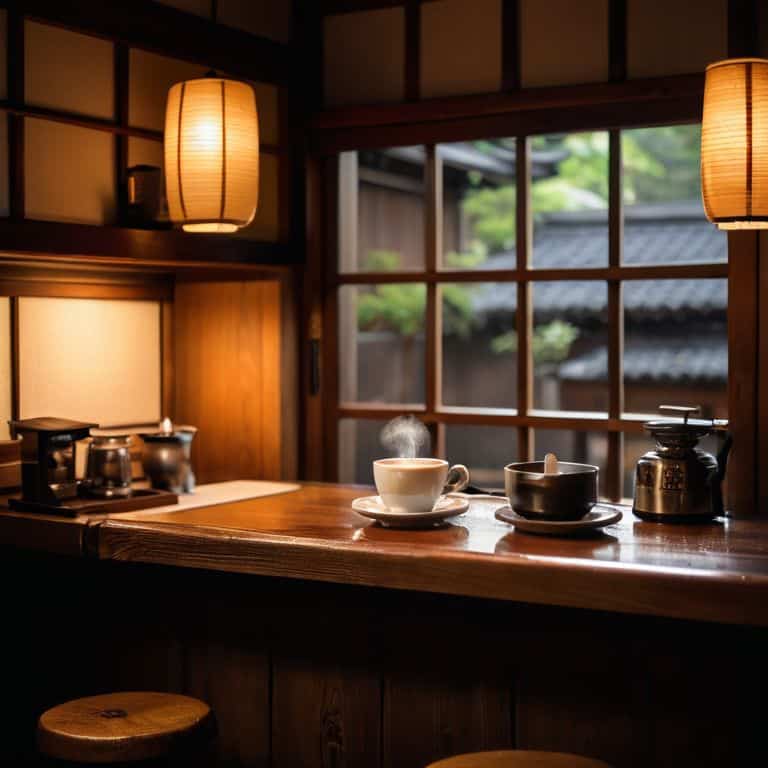As I sit in this ancient Istanbul café, I am reminded of the rich history that permeates every cup of coffee. The role of coffee in the Ottoman Empire is often touted as a grand, sweeping narrative of cultural and economic development. But, in my experience, the truth is far more nuanced. I’ve spent years researching the social role of coffee in different cultures, and I’ve come to realize that the story of coffee in the Ottoman Empire is not just about trade routes and royal decrees, but about the intimate conversations that took place over steaming cups.
In the following pages, I promise to take you on a journey through the hidden corners of Istanbul’s oldest coffeehouses, where the whispers of sultans and merchants still linger in the air. I’ll share with you the fascinating stories of how coffee fueled revolutions, inspired art, and brought people together in ways that transcend borders and cultures. My goal is to uncover the human stories behind our favorite ritual, to celebrate coffee as a catalyst for community, and to explore the cultural significance that lies beneath the surface of this beloved beverage. By the end of this journey, you’ll see the role of coffee in the Ottoman Empire in a whole new light, as a tapestry of traditions that continue to shape our world today.
Table of Contents
Brewing Ottoman Empire

As I wander through the bustling streets of Istanbul, I find myself drawn to the historical coffee houses in Turkey, where the aroma of freshly brewed coffee transports me to a bygone era. The Ottoman Empire’s coffee culture was a unique blend of tradition and innovation, with coffee playing a significant role in shaping the social fabric of the society. In these ancient coffee houses, I imagine the sounds of lively debates and whispered conversations, where coffee and social class in Ottoman society intersected in complex ways.
The coffee trade was a lucrative business in the Ottoman Empire, with coffee beans being imported from various parts of the world. As I sit in one of these historic cafes, I can almost taste the richness of the coffee, which was often flavored with cardamom and sugar. The influence of coffee on Ottoman literature is also evident, with many famous poets and writers frequenting these coffee houses to find inspiration and share their work.
In the Ottoman Empire, coffee was not just a beverage, but a political tool, used to foster alliances and negotiate trade agreements. The sultans would often invite foreign dignitaries to elaborate coffee ceremonies, where the art of coffee-making was showcased as a symbol of Ottoman hospitality. As I sip my coffee in this ancient cafe, I am reminded of the coffee culture in Istanbul, which continues to thrive to this day, a testament to the enduring legacy of the Ottoman Empire’s coffee tradition.
Coffee Culture in Istanbul Unveiled
As I wander through Istanbul’s historic streets, I stumble upon quaint cafes that whisper tales of the past. The aroma of freshly brewed coffee wafts through the air, transporting me to a bygone era. In these hidden gems, I discover the essence of Ottoman coffee culture, where every sip tells a story of tradition and community.
In the heart of Istanbul, coffee is more than just a drink – it’s an experience. The sound of gentle chatter fills the air as strangers become friends over steaming cups, forging bonds that last a lifetime.
Ottoman Empire Coffee Trade Secrets
As I delve into the ancient alleys of Istanbul, I uncover the hidden networks of coffee traders who played a crucial role in shaping the Ottoman Empire’s economy. The aroma of freshly brewed coffee wafts through the air, transporting me to a time when coffee was a highly prized commodity.
In the bustling bazaars, merchants would often engage in hushed conversations, discussing the latest trade routes and strategies for acquiring the finest coffee beans. The Ottoman Empire’s coffee trade was a complex web of secrets and negotiations, with coffee shop owners acting as conduits for information and innovation.
The Role of Coffee Unraveled
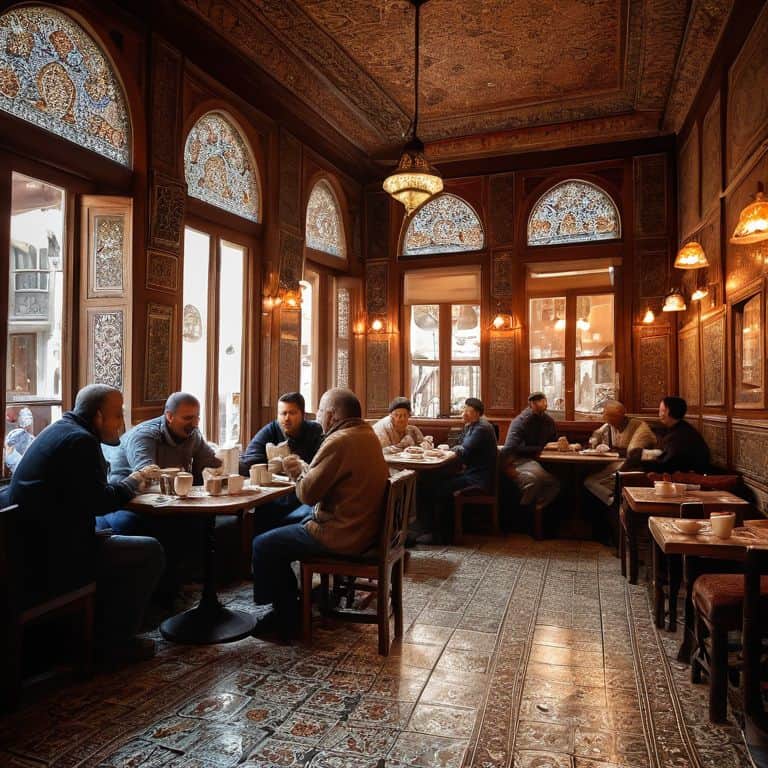
As I delve deeper into the Ottoman Empire coffee trade, I am struck by the intricate web of social, cultural, and economic factors that coffee influenced. In the historic cafes of Istanbul, coffee was not just a beverage, but a catalyst for conversation and connection among people from all walks of life. The coffee culture in Istanbul was a unique blend of tradition and innovation, where merchants, artists, and intellectuals would gather to share ideas and shape the city’s vibrant cultural landscape.
In these historical coffee houses in Turkey, coffee played a significant role in bridging social classes, as people from different backgrounds would come together to enjoy a cup of coffee and engage in lively discussions. The influence of coffee on Ottoman literature is also noteworthy, as many famous poets and writers would often meet in coffeehouses to share their work and find inspiration. As I sit in one of these ancient cafes, surrounded by the whispers of the past, I can feel the weight of history and the power of coffee to bring people together.
The influence of coffee on Ottoman society was not limited to the cultural sphere, as it also played a significant role in politics. Coffee was often used as a political tool in the Ottoman Empire, where rulers would use coffeehouses as a means to gather information and gauge public opinion. As I sip my coffee, I am reminded of the complex and fascinating history that surrounds this beloved beverage, and the significant role it has played in shaping the course of human events.
Coffee and Social Class Dynamics
As I delve into the intricate social fabric of the Ottoman Empire, I find that coffee played a significant role in bridging social gaps. The traditional coffeehouses, where people from all walks of life gathered, became a melting pot of ideas and conversations.
In these coffeehouses, social hierarchy was temporarily forgotten, and merchants, artists, and intellectuals mingled, exchanging stories and ideas over steaming cups of coffee.
Influence on Ottoman Literature Revealed
As I delve into the world of Ottoman literature, I find myself enchanted by the poetic descriptions of coffeehouses, where writers and poets would gather to share their works and discuss the issues of the day. The atmosphere was alive with creativity, and it’s no wonder that some of the most renowned Ottoman writers found inspiration in these very cafes.
In the works of Ottoman authors, I’ve noticed a recurring theme of community, where coffeehouses served as a backdrop for stories of love, loss, and social commentary. The coffee itself became a symbol of hospitality, generosity, and intellectual curiosity, weaving a rich tapestry of characters and experiences that continue to captivate readers to this day.
Unveiling the Flavors of History: 5 Key Tips on the Role of Coffee in the Ottoman Empire
- Experience the rich flavors of Ottoman coffee by using finely ground coffee beans and traditional ibrik brewing methods
- Discover the vibrant coffee culture of 16th-century Istanbul by visiting historic cafes and sipping on a traditional Turkish coffee
- Explore the intricate coffee trade routes that connected the Ottoman Empire to the rest of the world, influencing the global coffee industry
- Learn about the significant role coffee played in shaping Ottoman social dynamics, from royal courts to humble street vendors
- Delve into the world of Ottoman literature, where coffeehouses served as hubs for poets, writers, and intellectuals to exchange ideas and inspire creativity
Key Takeaways from the Ottoman Empire's Coffee Story
From the bustling streets of Istanbul to the imperial courts, coffee played a pivotal role in shaping the Ottoman Empire’s culture, economy, and social dynamics, leaving an indelible mark on its history.
The intricate dance between coffee culture and social class dynamics in the Ottoman Empire reveals a complex society where coffee houses served as egalitarian spaces, fostering intellectual and artistic movements that transcended social boundaries.
Through its influence on Ottoman literature, poetry, and art, coffee emerged as a catalyst for creative expression, with many notable figures finding inspiration in the vibrant atmosphere of the coffee houses, thus embedding coffee deeply into the fabric of Ottoman intellectual and cultural life.
A Brew of Revolution and Culture
As the aromatic wisps of coffee smoke wafted through the bustling bazaars and opulent palaces, they carried with them not just the essence of exotic beans, but the whispers of revolution, the murmurs of poetry, and the gentle stirrings of a society awakening to the beauty of communal conversation.
Isabella Marino
A Legacy Steeped in Tradition
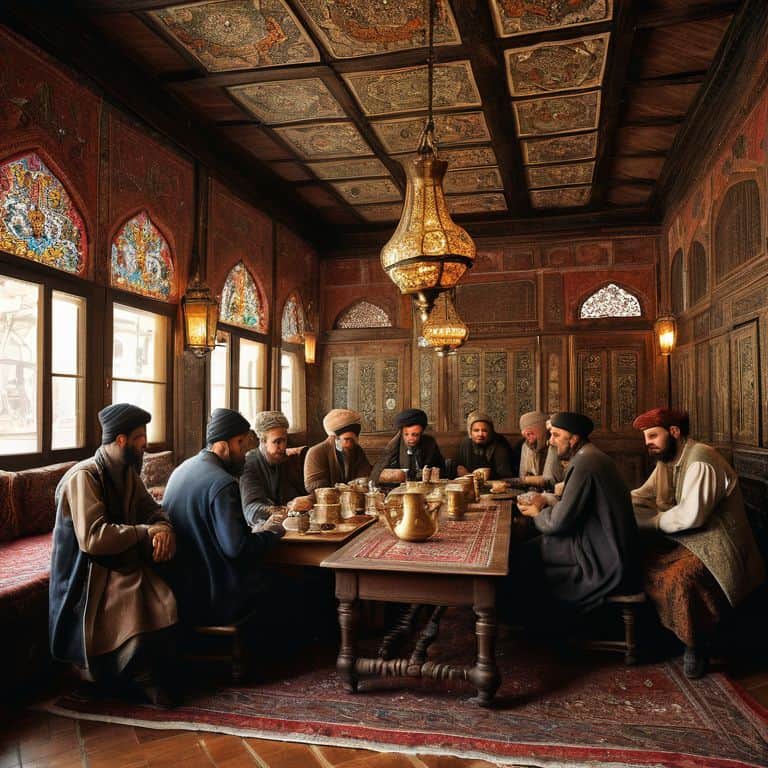
As I reflect on the role of coffee in the Ottoman Empire, I am reminded of the _intricate web_ of social, cultural, and economic factors that converged in the humble coffeehouse. From the coffee culture in Istanbul to the _secretive trade practices_ that fueled the empire’s growth, it is clear that coffee played a _profoundly influential_ role in shaping the Ottoman experience. Whether it was the _poets and writers_ who found inspiration in the coffeehouse atmosphere or the _merchants and traders_ who forged alliances over steaming cups, coffee was always at the heart of the action.
And so, as we sip our own coffee today, let us remember the rich legacy that precedes us. Let us cherish the _moments of connection_ and _community_ that coffee fosters, and let us honor the _tradition of storytelling_ that has been passed down through the centuries, one cup at a time. For in the end, it is not just a drink that we are enjoying, but a _taste of history_ and a _bridge to the past_.
Frequently Asked Questions
How did the Ottoman Empire's strategic location facilitate the spread of coffee culture throughout Europe?
As I ponder the Ottoman Empire’s role in spreading coffee culture, I recall the bustling ports of Constantinople, where merchant ships from Europe would dock, exchanging goods and stories. The Empire’s strategic location bridged East and West, allowing coffee to flow into European ports, sparking a cultural phenomenon that would forever change the continent’s cafes and conversations.
What role did coffeehouses play in the development of Ottoman intellectual and artistic movements?
In Ottoman coffeehouses, intellectuals and artists gathered to debate, create, and inspire one another. These vibrant hubs nurtured movements like Ottoman Romanticism, as poets and writers found solace in the rich aroma and lively discussions, fueling their innovative spirits and shaping the empire’s cultural landscape.
In what ways did the Ottoman Empire's coffee trade influence the social and economic dynamics of other regions, such as the Middle East and North Africa?
As I ponder the Ottoman Empire’s far-reaching coffee trade, I’m reminded of the vibrant souks of Cairo and the bustling medinas of Marrakech, where exotic coffee blends and stories of the East were eagerly exchanged, weaving a rich tapestry of cultural and economic ties that forever changed the social landscape of the Middle East and North Africa.
